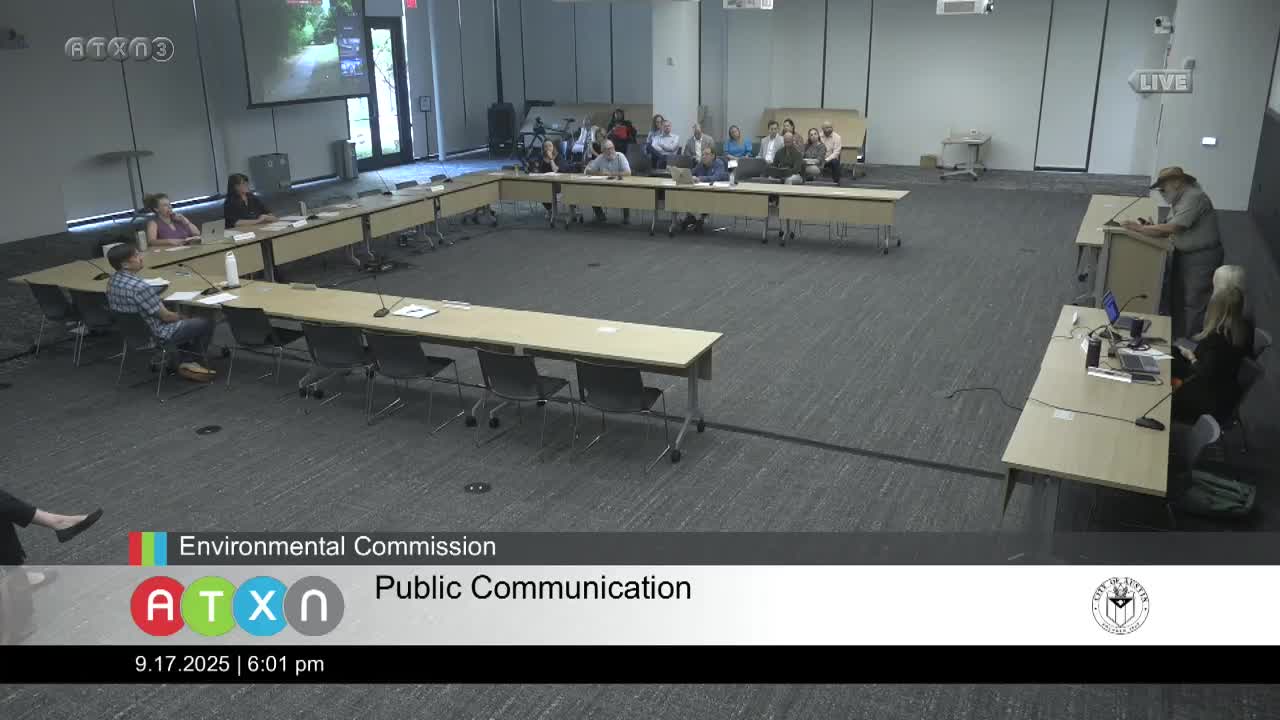Article not found
This article is no longer available. But don't worry—we've gathered other articles that discuss the same topic.
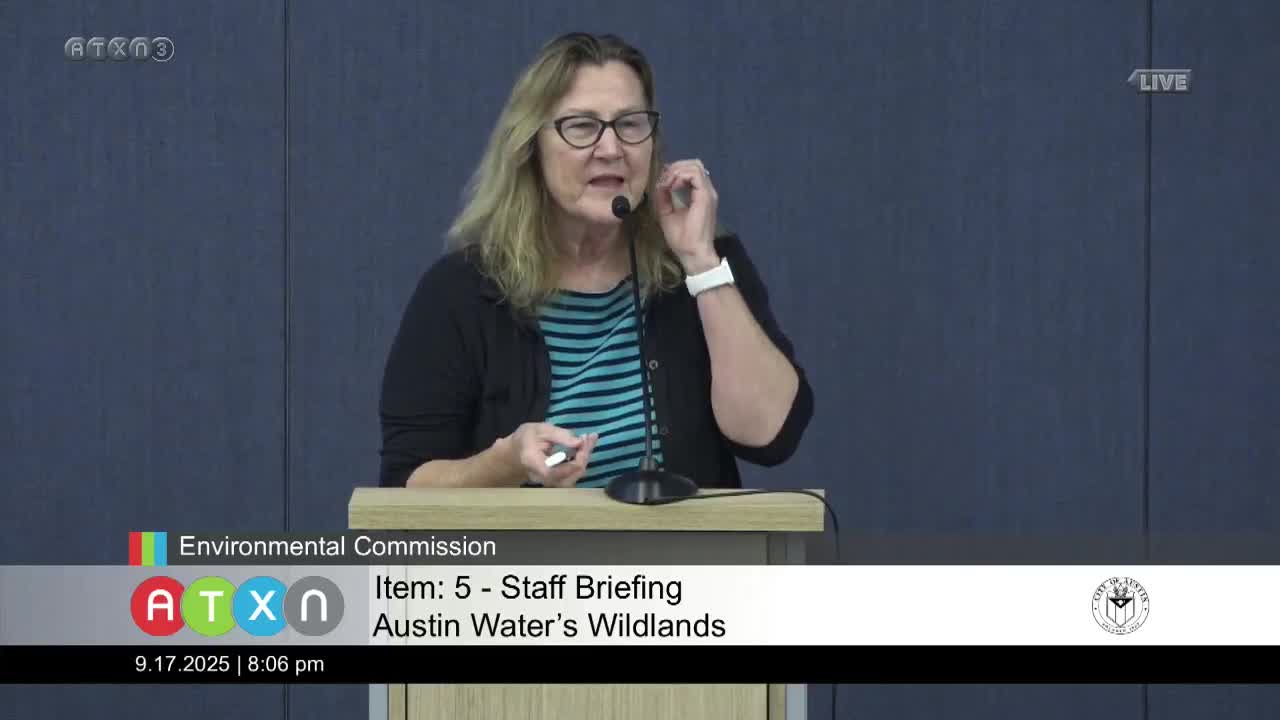
Austin Water describes 49,000 acres of wildland stewardship, warns of funding and wildfire risks
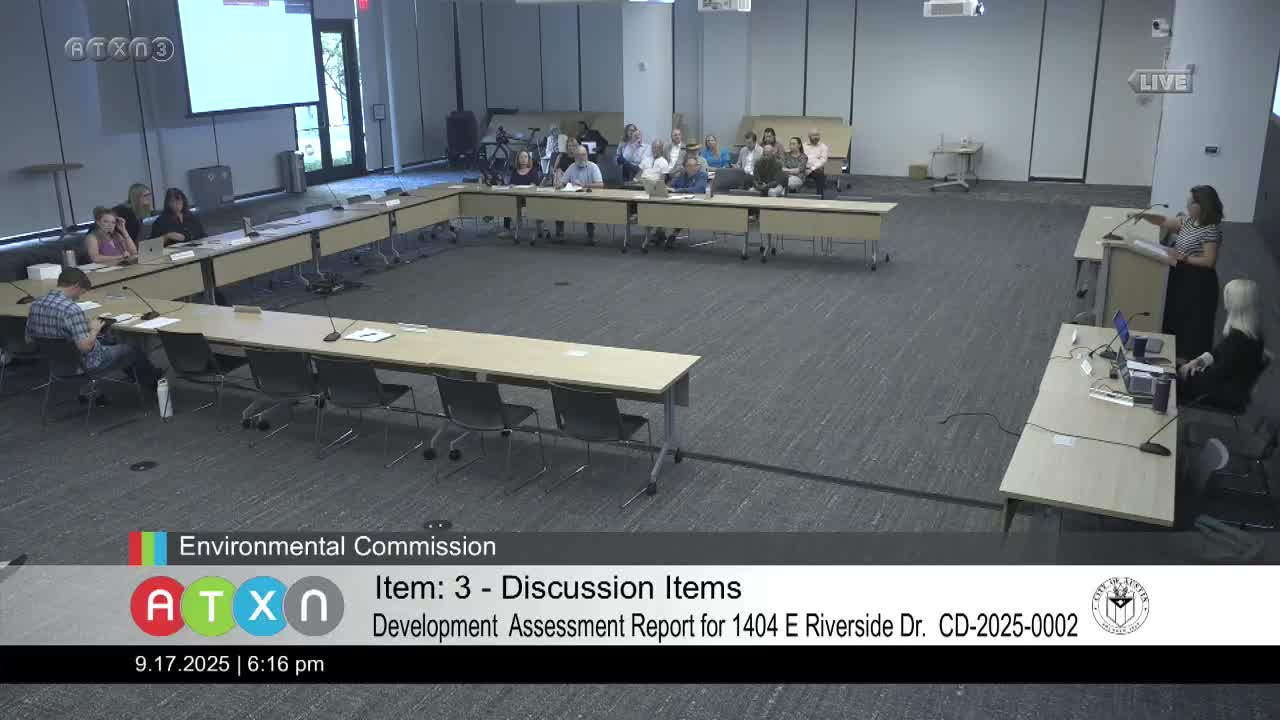
Developers outline 381‑unit plan for 1404 E. Riverside; PUD assessment raises trees, wetlands and height questions
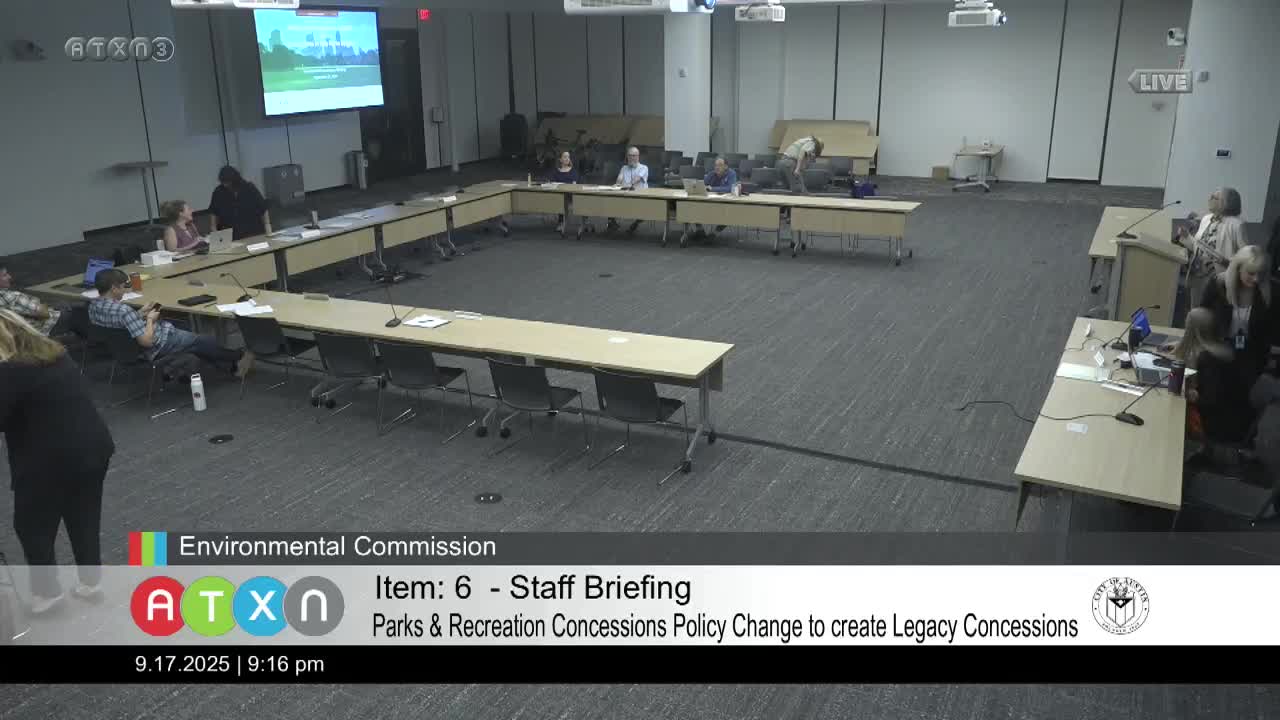
Parks staff propose legacy‑concession rules; public commenter urges environmental clauses
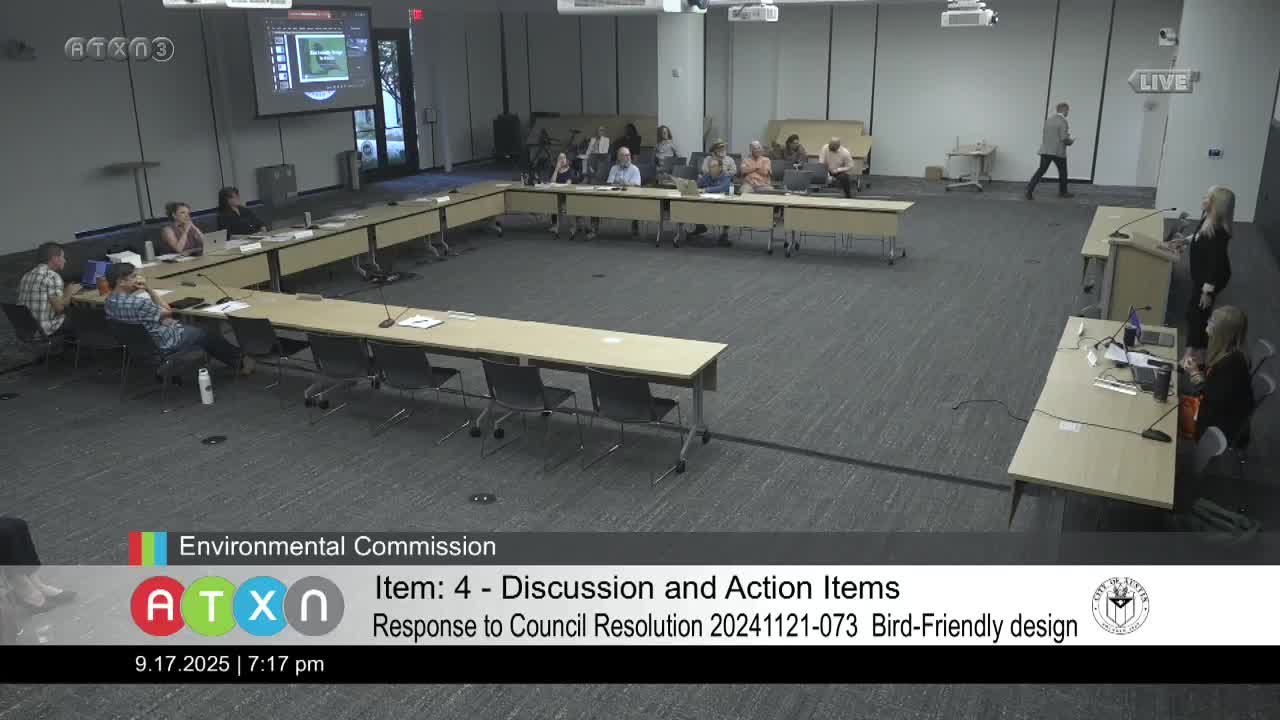
Environmental Commission backs bird‑friendly building rules, asks council to act
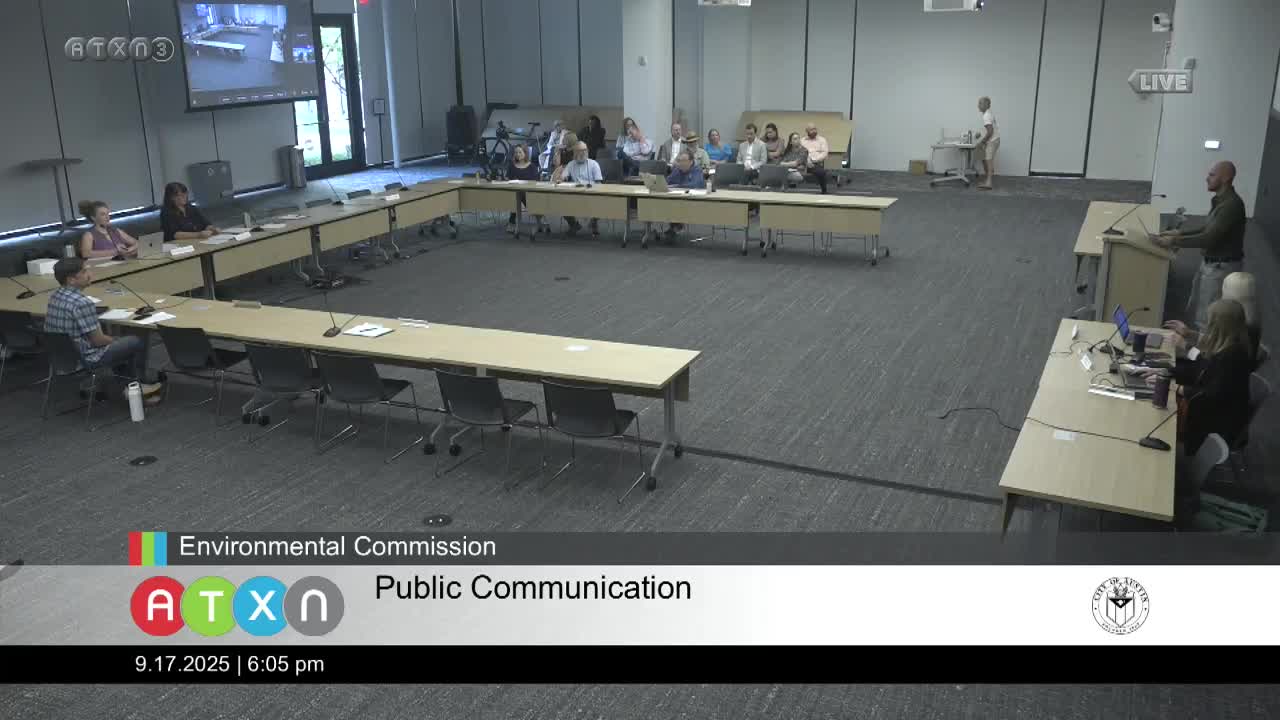
Resident asks commission to take up Travis County landfill leachate concerns after alleged seep to Walnut Creek watershed
